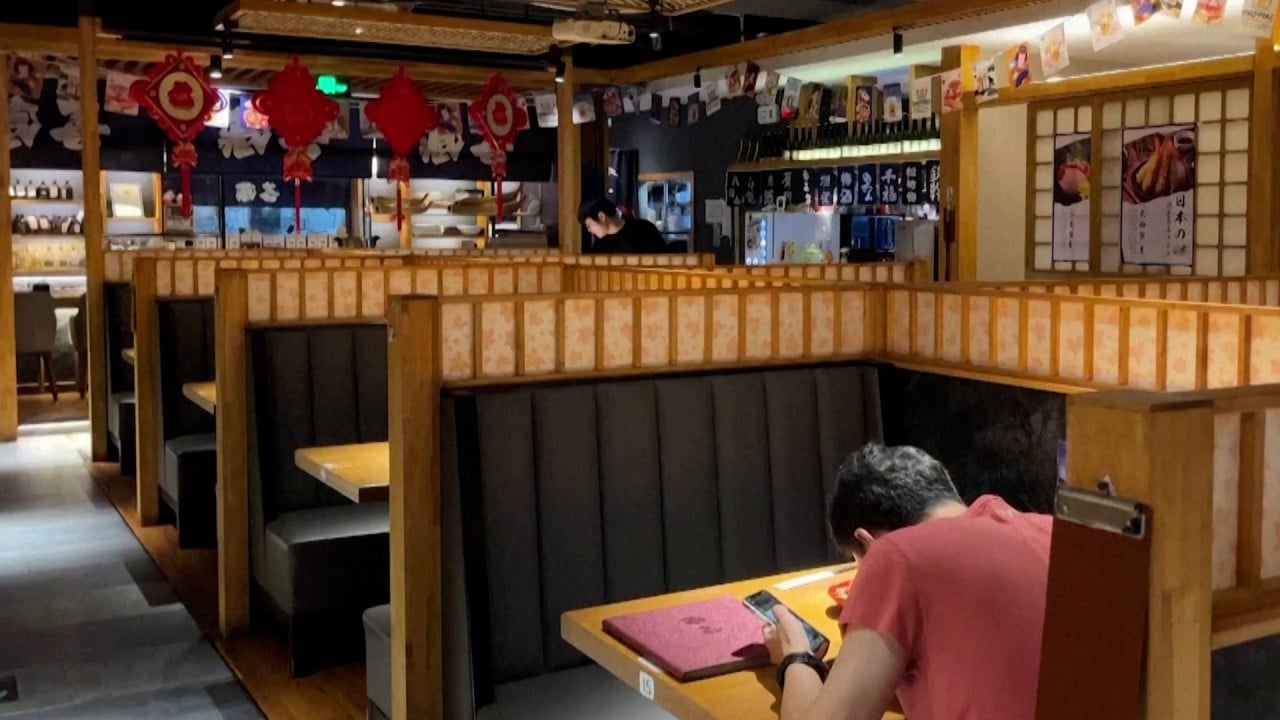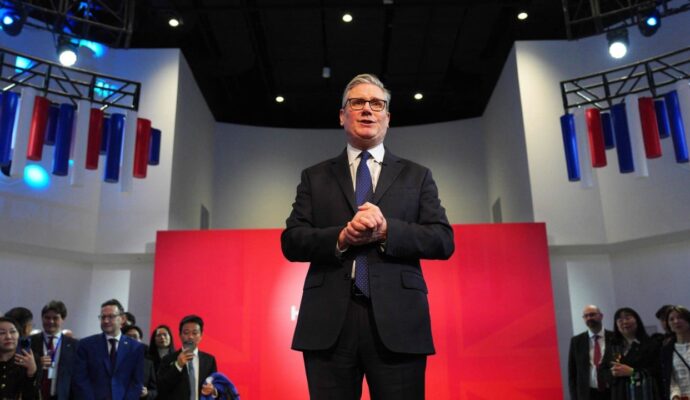“There is no precedent for the discharge of nuclear contaminated water into the ocean, nor is there a widely recognised disposal standard,” he said.
“The Japanese side has yet to address the major concerns of the international community about the long-term reliability of the water treatment equipment, the truthfulness and accuracy of the data on nuclear-contaminated water, and the soundness and effectiveness of the monitoring programme.”
Why China’s ban on Japanese seafood because of Fukushima water could backfire
Why China’s ban on Japanese seafood because of Fukushima water could backfire
Geng also said that the International Atomic Energy Agency (IAEA)’s widely cited assessment that the release would have a “negligible” impact on the environment, was “was not a licence” for Japan to dispose of the waste water.
Advertisement
“The report … does not absolve the Japanese side of its moral responsibility and obligations under international law,” he said.
Geng said that whatever Japan said, nothing “is going to change the fact that in the next 30 years, Japan will discharge millions of tonnes of contaminated water into the Pacific Ocean and it will not change the fact that it is going to pose enormous risks to the environment, human health and so on”.
Japan’s ambassador Kimihiro Ishikane hit back at China’s “baseless allegations”, insisting that scientific evidence shows the discharges are safe.
The clash came at an emergency meeting of the security council – convened at the request of the US, the council’s current chair, and six other nations, including Japan – to discuss North Korea’s failed attempts to launch a spy satellite.
Advertisement
While most countries attacked North Korea, China defended its communist ally, with Geng accusing the US of having “a long-standing hostile policy” towards Pyongyang.
The North Korean UN ambassador Kim Song sided with Beijing on the nuclear waste issue, urging the Security Council to denounce “Japan’s heinous crime against humanity,” which he said is jeopardising the safety and security of all people and the marine ecological environment.
Tokyo Electric Power Company (TEPCO), the operator of the Fukushima Daiichi Nuclear Power Plant that was wrecked by a tsunami in 2011, said on Friday that radioactivity levels were well within safe limits.
Advertisement
It said no detectable amount of tritium had been found in seawater samples taken from 10 locations within a distance of 3km (2 miles) of the nuclear plant hours after the water discharge began.
While TEPCO plans to continue taking daily seawater samples for analysis and will publicly disclose the results the following day for about a month, Japan’s environment ministry said it would also conduct sample analyses every week for around three months.
China, Japan’s biggest seafood export market, issued a sweeping ban on all Japanese aquatic products on Thursday and the following day imposed an additional ban on food producers processing seafood that originated in Japan for sale.
Advertisement
Hong Kong and Macau have also banned seafood from Fukushima and nine other Japanese prefectures.
Beijing has rebuffed a request by Japanese Prime Minister Fumio Kishida to “immediately eliminate” the import restrictions and start “science-based discussions” between the two sides.
Advertisement
Chinese foreign ministry spokesman Wang Wenbin said on Friday: “China and other stakeholders have the right and the responsibility to take legitimate, reasonable and necessary preventative measures to protect the marine environment, food safety and people’s health in response to Japan’s extremely selfish and irresponsible actions.
“Competent departments in China will continue to enhance monitoring, and follow and assess the possible radioactive impact off China’s shores resulting from the ocean discharge of the Fukushima nuclear-contaminated water.”
The decision has also prompted panic-buying of salt from consumers worried future supplies may be contaminated.
Mainland authorities, including the China Salt Association, have been forced to issue statements that are ample supplies to meet domestic demand.
The decision has also led to a spike in anti-Japanese sentiment across China. The Japanese embassy in Beijing issued an alert to its nationals on Friday, urging them to “try to be cautious, such as not speaking Japanese loudly or unnecessarily” when going out.
The notice also advised citizens to “pay close attention to the embassy surroundings” if they needed to visit.
Panic-buying Hongkongers told salt does not offer protection against radiation
Panic-buying Hongkongers told salt does not offer protection against radiation
Observers said the protracted row over Japan’s handling of the nuclear waste water underlined the widening geopolitical and ideological schisms between the Asian neighbours on top of their historical grievances and territorial disputes.
One mainland analyst of international affairs, speaking on condition of anonymity, said China had failed to garner much international support for its stance and warned it risked pushing Japan further away and exacerbating its own diplomatic isolation.
“While Beijing believes it has seized the moral high ground vis-à-vis Tokyo on this issue, the US, the European Union and most of Japan’s neighbours have either backed Japan or kept quiet about the discharge, recognising the IAEA’s expertise,” he said.
He also expressed concern that banning seafood and spreading fears about marine pollution could damage China’s own fishing industry.
“The censorship of science-based discussions and the fanning of anti-Japanese sentiment may eventually backfire,” he warned.
Zhao Tong, a senior fellow at the Carnegie Endowment for International Peace, also said there was a notable absence of diverse views and expert analysis in the current Chinese debate.
“In a domestic environment that places ‘patriotism’ above all else, reporters and analysts of news – and of the science behind it – spontaneously filter out politically unwelcome aspects of science,” he said in a series of posts on X, the site formerly known as Twitter.
“No one needs to lie; no one is explicitly told to lie; they just speak and receive half-truths,” he said, pointing out that state-controlled media had not “put this issue into context” by comparing the Fukushima waste water with other radioactive discharges, including from China’s own nuclear plants.
Advertisement



